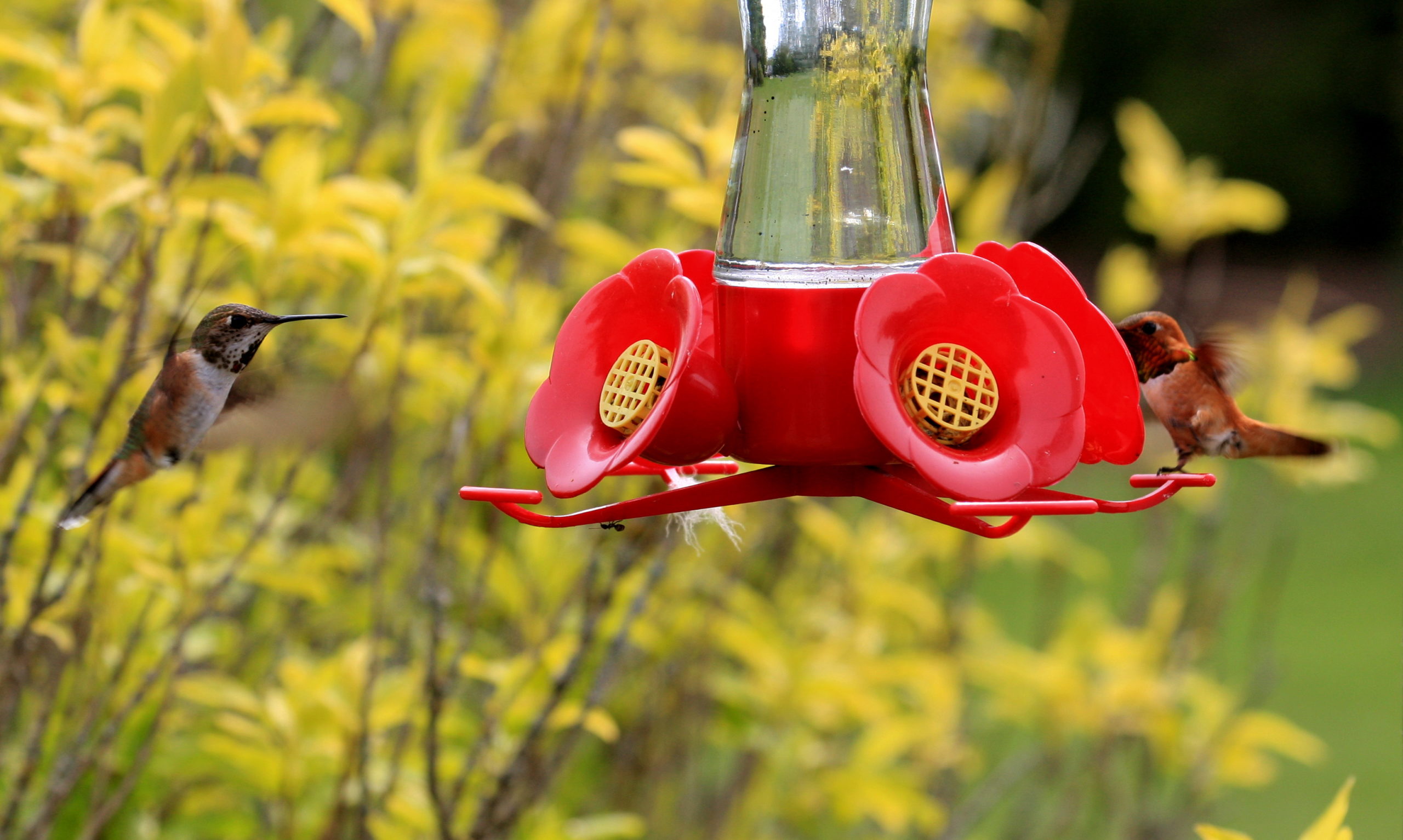Support Us
Since 1979 more than 140,000 animals have been treated by Wildlife Rescue.
Thanks to the support of individuals like you, Wildlife Rescue can provide a lifeline for animals in distress.
As winter sets in, wildlife faces severe challenges – from dwindling food supplies and freezing temperatures to ice-covered water sources. Your generous gift can help provide critical care for these vulnerable animals, offering them the resources they need to survive and recover. With your help, injured wildlife can return to the wild.
 If you decide to offer a hummingbird feeder, it's essential for the birds’ safety to maintain it following the recommended guidelines all year round. The best food for hummingbirds Hummingbirds have the highest metabolism of any warm-blooded animal. A high... Read More
If you decide to offer a hummingbird feeder, it's essential for the birds’ safety to maintain it following the recommended guidelines all year round. The best food for hummingbirds Hummingbirds have the highest metabolism of any warm-blooded animal. A high... Read More
The Arctic outflow has impacted wildlife dramatically this season! With a record-breaking drop in temperature across the Lower Mainland, hummingbirds are coming into Wildlife Rescue Association (WRA) in record numbers with cold-induced injuries.
Read MoreHummingbirds – a crowd favourite, miniature acrobats that dart and dip, hunting for high-energy foods.
Although these tiny birds weigh less than a loonie (averaging between 3 and 6 grams), hummingbirds need to be almost constantly eating. Hummingbirds flap their wings 50 times or more per second in order to maintain their signature hovering flight. Undoubtedly, this requires an immense amount of energy. In order to fuel their flight, hummingbirds consume half their body weight in pure sugar every day!
Read MoreWhile planting a native flowering garden will provide the best natural source of food for hummingbirds, supplementing with a properly maintained hummingbird feeder can provide additional sustenance to local hummingbirds. However, in order to help and not harm, you must ensure your feeders are properly maintained.
Read More
What are the best techniques for maintaining my hummingbird feeder in the winter? What exactly is torpor and how do I know when a hummingbird is in distress?
Read MoreHummingbird feeders are a great way to observe these beautiful birds while providing them a source of energy! Feeders can be especially important to Anna’s Hummingbird, a species that stays throughout the year, and to other species that may be delayed in their migration. While it may seem like a simple thing, hummingbird feeders require more attention than just filling them with sugar water.
Read MoreIdeally, all hummingbird feeders should be taken down in September of each year before migration begins. Leaving feeders up will not discourage migration, as hummingbirds that migrate are instinctually driven to do so, however; it can alter their behaviors. In some cases, these feeders are left up unknowingly and without proper care, which can ultimately lead to the fungal infections, starvation and death of the hummingbirds which have become dependent on them for survival.
Read More